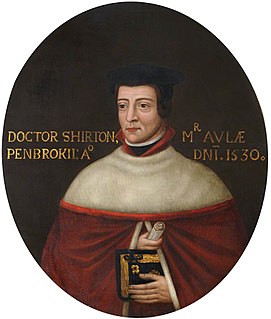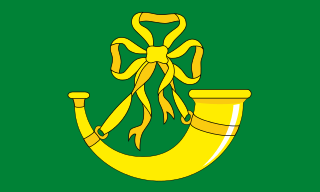
Ralph Cudworth was a famed English Christian Hebraist, classicist, theologian and philosopher, and a leading figure among the Cambridge Platonists. From a family background embedded in the early nonconformist environment of Emmanuel College where he studied (1630–45), he became 11th Regius Professor of Hebrew (1645–88), 26th Master of Clare Hall (1645–54), and 14th Master of Christ's College (1654–88). He was a leading opponent of Thomas Hobbes's political and philosophical views, and his magnum opus was his The True Intellectual System of the Universe (1678).

John Hacket was an English churchman, Bishop of Lichfield and Coventry from 1661 until his death.
Theophilus Gale (1628–1678) was an English educationalist, nonconformist and theologian of dissent.

William Pierrepont was an English politician who sat in the House of Commons at various times between 1640 and 1660. He supported the Parliamentary cause in the English Civil War.
Robert King LL.D. was an English jurist and Master of Trinity Hall, Cambridge.
Thomas Horton D.D. was an English clergyman, Professor of Divinity at Gresham College in London, and President of Queens' College, Cambridge.

Richard Love (1596–1661) was an English churchman and academic, Master of Corpus Christi College, Cambridge, Lady Margaret's Professor of Divinity, member of the Westminster Assembly, and Dean of Ely.

William Stanley (1647–1731) was an English churchman and college head, Master of Corpus Christi College, Cambridge, Archdeacon of London and Dean of St Asaph.
Thomas Byng was an English academic and lawyer, Master of Clare Hall, Cambridge from 1571.

Robert Shorton was an English churchman and academic, first Master of St John's College, Cambridge and Archdeacon of Bath.
John Crayford was a Master of both Clare College, Cambridge and University College, Oxford, England. Martyn was unusual in being a Master of colleges at both the universities of Oxford and Cambridge. He was the only Master of University College to also have been a Master at a Cambridge college.

William Richardson (1698–1775) was an English academic and antiquary, Master of Emmanuel College, Cambridge from 1736.
Thomas Lynford was Archdeacon of Barnstaple.
Thomas Wren (1632–1679) was Archdeacon of Ely from 1663 until 1679.
Humphrey Tyndall was an English churchman who became the President of Queens' College, Cambridge, Archdeacon of Stafford, Chancellor of Lichfield Cathedral and Dean of Ely.
Thomas Kaye Bonney(b Tansor 20 June 1782 - d Normanton 7 April 1863) was Archdeacon of Leicester from 22 January 1831 until his death.
Thomas Holbech, D.D. (1606-1680) was an academic in the 17th century.

Thomas Worsley was an English academic and priest. He was the third Master of Downing College, Cambridge from 1836 until 1885.
Joseph Craven was an 18th-century academic.
The public domain consists of all the creative works to which no exclusive intellectual property rights apply. Those rights may have expired, been forfeited, expressly waived, or may be inapplicable.

Sir Leslie Stephen, was an English author, critic, historian, biographer, and mountaineer, and father of Virginia Woolf and Vanessa Bell.

The Dictionary of National Biography (DNB) is a standard work of reference on notable figures from British history, published since 1885. The updated Oxford Dictionary of National Biography (ODNB) was published on 23 September 2004 in 60 volumes and online, with 50,113 biographical articles covering 54,922 lives.















